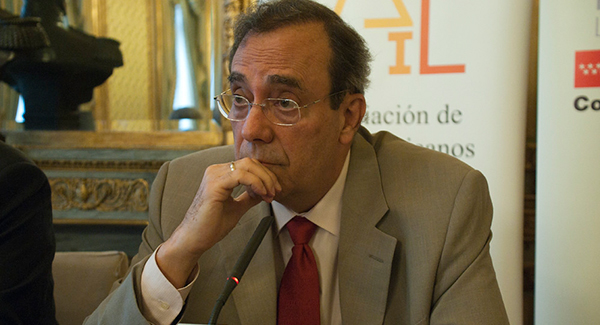Cuba recently lost one of its foremost intellectual and political figures, Carlos Alberto Montaner, who went into exile in 1960 after escaping from Fidel Castro’s prisons and smuggling himself into the Honduran Embassy. He was never able to fulfill his dream of going back to a free Cuba. But if liberal democracy under the rule of law ever takes root on that island, it will be, in part, because of his legacy.
At the age of 80, after suffering from Parkinson’s disease for many years and, more recently, learning that he had an incurable progressive supranuclear palsy—a rare neurological condition that affects walking, eye movement and balance—Montaner died peacefully in his Madrid home via assisted suicide. (Spain is one of eight countries that allow it; in the U.S., medically assisted dying is legal in 10 states and the District of Columbia.)
He leaves behind a powerful body of work that Cubans need to heed if they want to build something better than what they’ve had in the century and a quarter since the island became independent.
He and I often discussed the chicken-and-egg conundrum of political and socioeconomic development.
Do we need to change the culture of underdeveloped countries before modern and durable institutions can be set up, or can the right institutions create incentives that will eventually change the culture? He tended to side with those who, like the late Lawrence Harrison, author of “Underdevelopment is a State of Mind,” believe that culture comes first.
But he also saw sense in Nobel Prize-winning economist Douglass North and others who placed a strong emphasis on institutional change from the get-go. If and when Cuba becomes a flourishing liberal democracy, it will owe a lot to Montaner’s ideas about the cultural underpinnings of prosperity, expressed in such books as “Twisted Roots: Latin America’s Living Past,” “Latin Americans and the West” and others.
Witnessing the transition from dictatorship to democracy and the rule of law in the Iberian Peninsula in the 1970s and in many Latin American countries at the beginning of the 1980s (many of which, regrettably, have reverted back to their old ways) filled his books and countless speaking engagements with practical wisdom.
After the collapse of the Soviet Union in 1991, thinking that Cuba’s transition was imminent, Montaner even formed a political party, the Cuban Liberal Union, and joined two other parties, the Social Democrats and Christian Democrats, in the hope that the alliance (known as the Democratic Platform) would play a role in the new era.
It was never to be, but as vice president of Liberal International, a global federation of democratic, anti-authoritarian political parties, he traveled extensively, witnessing liberal democracy at work in all sorts of environments and networking with world leaders who showed what a normalized political life might look like in the future and how Cuba could quickly insert itself in the international community of civilized nations if it changed its political system.
As a classical liberal, Montaner was acutely aware of the importance of preventing the abuse of the democratic system by the majority by putting in place institutional safeguards, like the U.S. Bill of Rights, to protect individuals and minorities.
He studied the case of many nations, including, in recent decades, Venezuela, that became dictatorships not through violent insurrection or a coup d’etat, but through the ballot box and the gradual dismantling of the rule of law from within.
In some of the books we wrote (together with Plinio Apuleyo Mendoza), we attempted to show how nationalism, populism and abuse of the concept of majority rule could all destroy freedom.
His style was that rare combination of journalism and pedagogy, humor and erudition, reasoning and storytelling that made his books so compelling (at the beginning and the end of his literary career, fiction was predominant in his writing) and his lectures so pleasurable and didactic at the same time, without a hint of pedantry.
Although he wrote and spoke and was knowledgeable about many things, Cuba was his passion, which is why the catalog of the publishing house he founded and owned for many years, Playor, is filled with some of the great names of contemporary Cuban nonfiction, including historian Leví Marrero and economist Carlos Mesa-Lago.
Although textbooks were a big focus of the business, Playor also taught Cubans about their history, their society, their culture and their literature through many important publications. That is another reason why a free Cuba will owe him so much.
Rest in peace, beloved friend.













